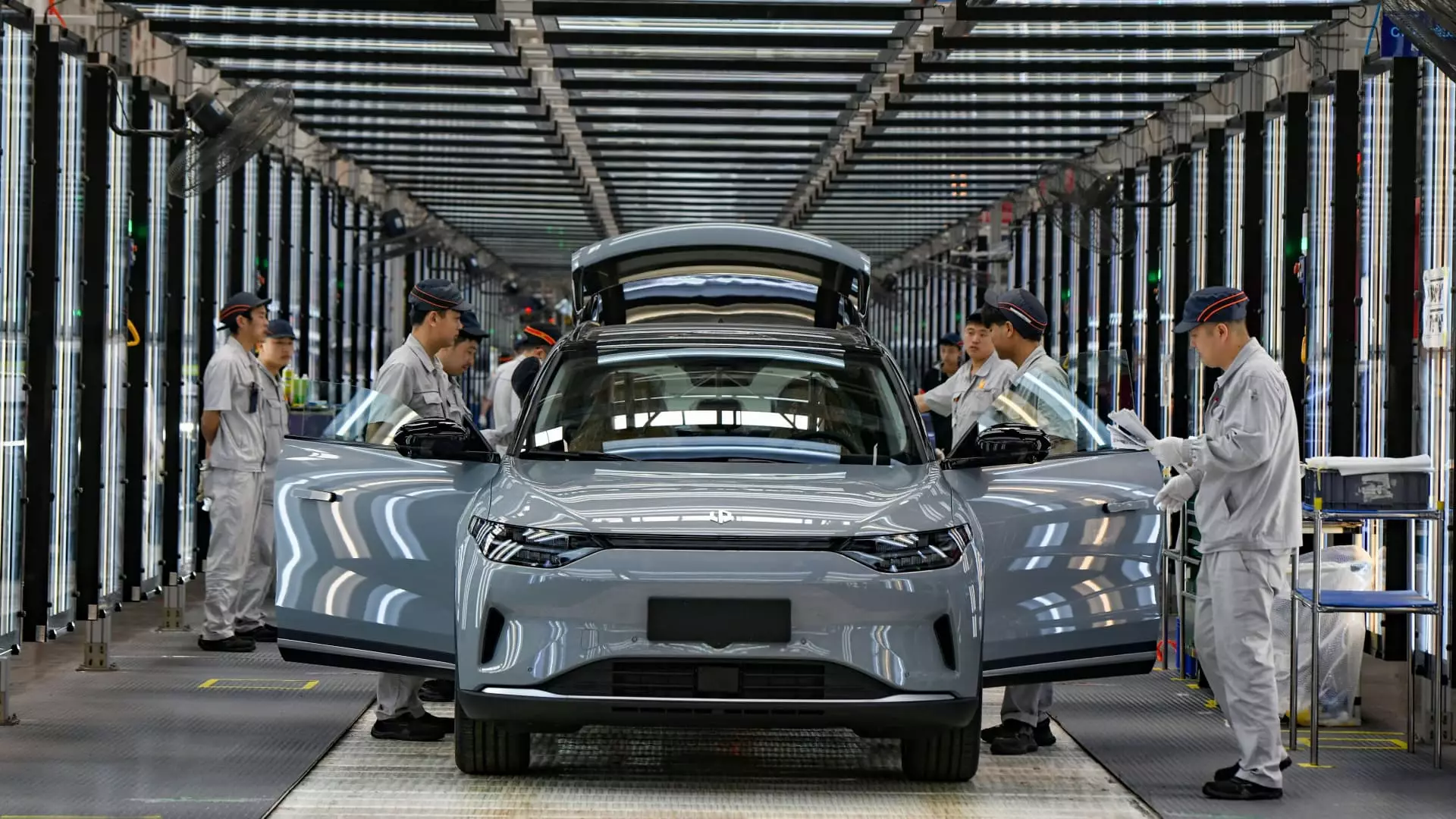The automotive sector faced a steep decline in share prices on Monday, primarily triggered by President Donald Trump’s recent decision to impose tariffs on goods imported from Canada, Mexico, and China. The tariffs, which amount to 25% on a wide range of goods from Mexico and nearly all Canadian imports, as well as a 10% levy on energy products from Canada and Chinese goods, were announced via executive orders signed over the weekend. The immediate aftermath has seen investors react nervously, fearing the ramifications of a potential trade conflict that could alter the landscape of auto manufacturing and sales worldwide.
Trump’s administration has framed these tariffs as a necessary measure to combat what they perceive as significant threats, notably illegal immigration and the trafficking of drugs such as fentanyl across U.S. borders. While the administration views these tariffs as a defensive strategy, the contemplation of adverse effects on American consumers looms large. The President openly acknowledged that the American public may experience “some pain” as a result of these economic policies.
The immediate response from auto manufacturers was alarming. In pre-market trading, stocks of U.S. automotive giants took a notable plunge; General Motors saw a decline of 6.6%, while Ford’s shares dropped over 4%. Furthermore, international players like France’s Valeo and Stellantis experienced declines of 7.8% and 6%, respectively. German automotive giant Volkswagen was not spared, slipping 6% amid escalating concerns over a prolonged trade war. The adverse effects extended beyond the U.S. borders, with major Japanese manufacturers, including Toyota and Nissan, reporting losses exceeding 5% at the opening bell of the trading day.
Auto analysts have been quick to point out the precarious nature of automotive supply chains, which are heavily reliant on integrated manufacturing across North America, especially in Mexico. The ramifications of tariffs on this relationship could lead to significantly increased costs for manufacturers, forcing them to reassess their operational strategies. A trade war escalation could compel these companies to either absorb the costs or, worse, pass them on to consumers, thereby fueling inflation and affecting car sales.
In a show of solidarity, both Canada and Mexico have expressed intentions to respond forcefully to these tariffs, considering measures that would include their own levies against U.S. goods. The potential for retaliatory tariffs looms large, casting a shadow over cross-border trade relations that have thrived for decades. This volatile environment could severely impact the economic stability of industry stakeholders and consumers alike.
In an unsettling development, Trump has indicated that tariffs might extend to the European Union. The potential imposition of duties on EU automotive imports could reshape the dynamics of transatlantic trade. Analysts project that such a move could escalate costs for European manufacturers and, in turn, diminish their competitiveness in the U.S. market. The EU, currently grappling with its own economic challenges, has vowed a proportionate response if faced with U.S. tariffs.
The Broader Economic Landscape
As the world’s largest car markets face the specter of tariffs, German manufacturers like BMW and Volkswagen are already grappling with economic slowdowns. Both have recently issued profit warnings linked to sluggish demand in China and a broader economic malaise. These developments not only threaten the profitability of major brands but also signify potential job losses and a downturn in innovation across the automotive sector. BMW has encapsulated the sentiment, asserting that free trade is vital for growth, whilst tariffs will stifle innovation and create a downward economic spiral.
The overarching consequences of Trump’s administration’s tariff policies are poised to ripple through the global automotive industry, invoking responses far beyond U.S. borders. As manufacturers prepare for a tumultuous environment, a collective plea for sustained dialogue and the promotion of open trade echoes from the automotive arena. In an increasingly interconnected world, collaborative negotiation could be the medicine necessary for fostering economic stability and protecting the competitive nature of the global automotive landscape.


Leave a Reply